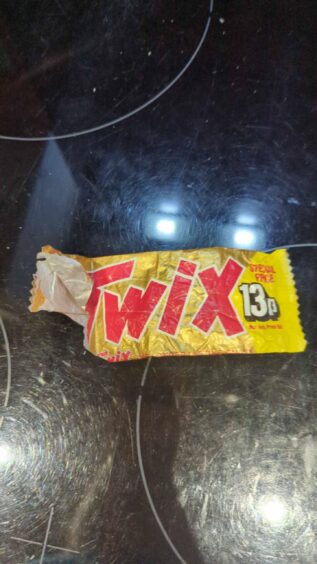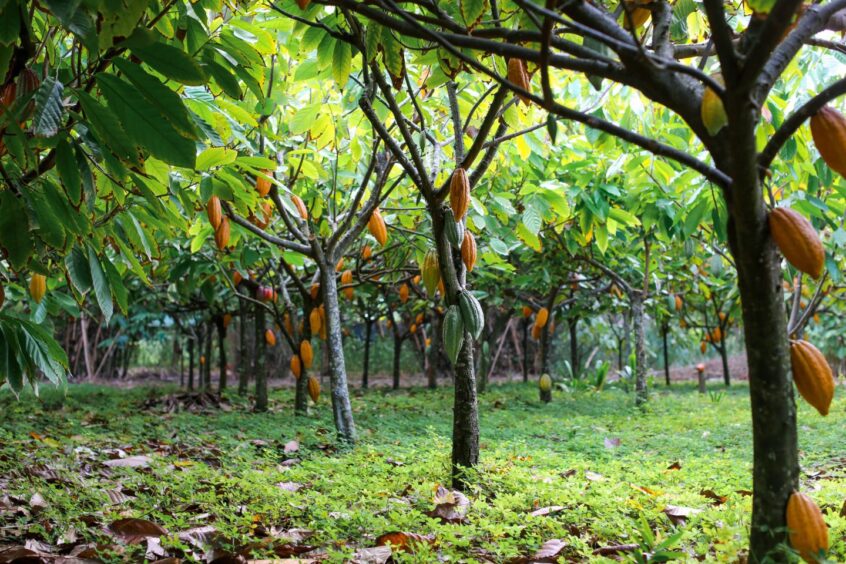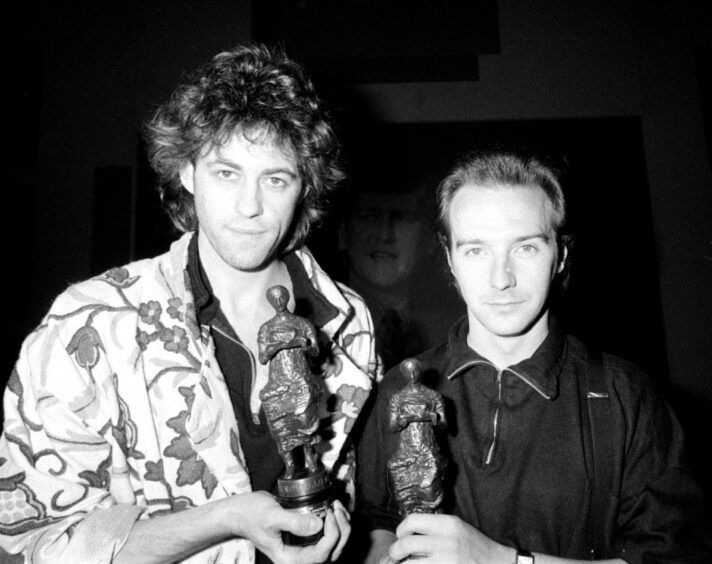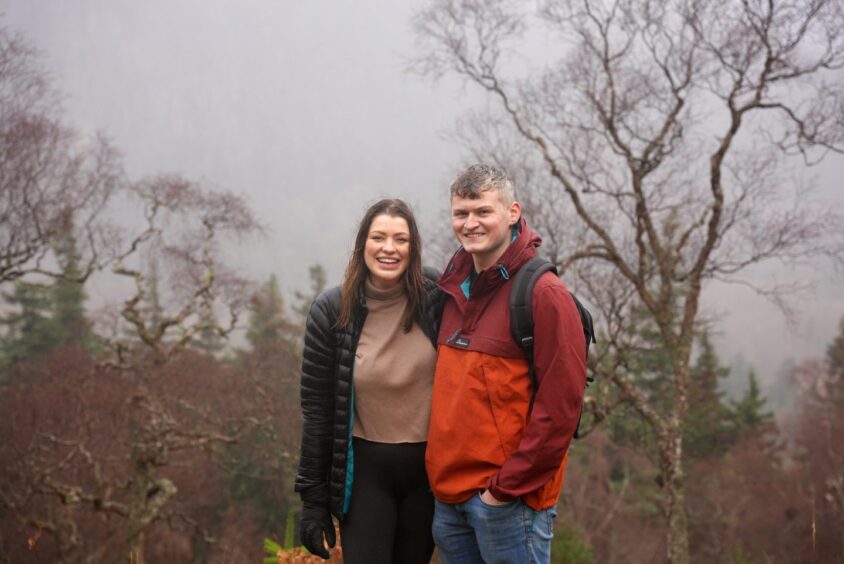The discovery of a 40-year-old Twix wrapper near Thurso made me nostalgic for a time when chocolate bars were bigger, music was better and if you wanted to socialise, you popped out to the pub.
Things are oh so different now and yet oh so much the same.
The wrapper was found by Kimberley McDonald as she walked her dog on Dunnet Beach.
The price was 13p and the sell-by date was August 1984.
Kimberley said her children, aged 11 and 12, were most amazed by its bigger size.
Shrinkflation isn’t new but there has been a lot more of it, on everything from butter to bathroom cleaner, during the cost-of-living crisis.
It’s when manufacturers attempt to cut their costs by reducing the size of a product but not the price.
Twix wrapper on Dunnet Beach is a timely find
With chocolate, the picture is more complex and is linked to climate change as the price of cocoa hit a record high after crop failures in West Africa.
Ivory Coast is the world’s biggest producer and, together with Ghana, is responsible for two thirds of the world’s cocoa supplies.
Climate change, and the El Niño phenomenon which sees the Pacific warm up, has caused adverse weather and disease in both countries, ultimately leaving farmers short of beans.
At the same time, thousands of miles away, Scottish ministers have scrapped the goal to cut carbon emissions by 75% by 2030.
The idea of rich countries paying for climate ‘reparations’ to compensate developing nations who have contributed much less to global warming, is the subject of debate.
But sometimes all it takes is a chocolate wrapper found on a far north beach to remind us that, when it comes to saving the planet, everything and everyone is interconnected.
We are more aware these days of the impact our choices have on the climate but in 1984, I don’t recall ever questioning the causes of weather events such as flooding and droughts.
Band Aid and Apple Macs, that was quite a year
It was the year of Band Aid, when the biggest stars of the day got together for 24 hours in London to cut a single to raise funds for Ethiopian famine victims.
Do They Know It’s Christmas raised more than £8 million for the cause and became the highest-selling record ever.
It led to Live Aid the following year and Sport Aid the year after that, culminating in the Race Against Time fun run.
I was thrilled when my “I Ran The World” T-shirt turned up and immediately went knocking on the neighbours’ doors for sponsorship.
Everyone wanted to be part of it because it was all so novel and inspiring. Nowadays you can’t leave the house without tripping over a charity cyclist.
Big Brother featured in Apple advert
Also, 1984 was the year Apple Macintosh released its personal computer, with a price tag of £2,000.
The advert drew from George Orwell‘s novel 1984. It depicted rows and rows of people staring blankly at a screen until the unnamed heroine runs up and throws a hammer through the image of Big Brother.
The message somehow tried to suggest that by getting a personal computer you’d be free.
At the time the Internet was still a twinkle in the eye of Tim Berners-Lee and social media was an even longer away off.
It’s ironic such an advert would herald a generation hooked on screens who hardly dare speak to one another in person, let alone knock on the neighbours’ doors and talk face-to-face about fun runs and famine.
Now we’re at a point where the notion that single people might be able to meet each other in person rather than online, has become a news story.
Ellon couple Anna Gill and her husband Matthew were amazed by the demand for tickets to their walk along the coast in Stonehaven, aimed at helping single people meet up.
Anna, who met her husband on Tinder 10 years ago, explained she would have enjoyed telling people she met the love of her life while on a walk.
She said: “I think everyone there was just fed up with dating apps. People are wanting to meet people in a way that’s authentic, real life and natural.”
Maybe we haven’t changed all that much after all.







Conversation